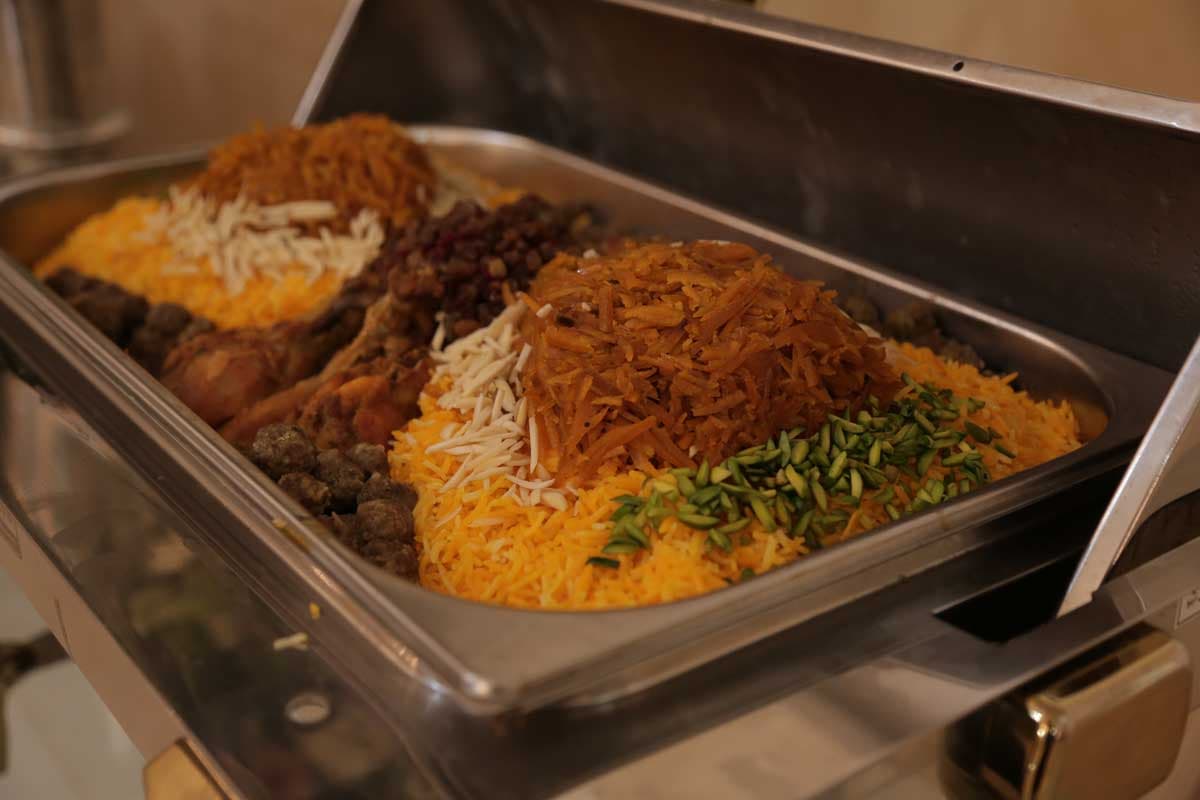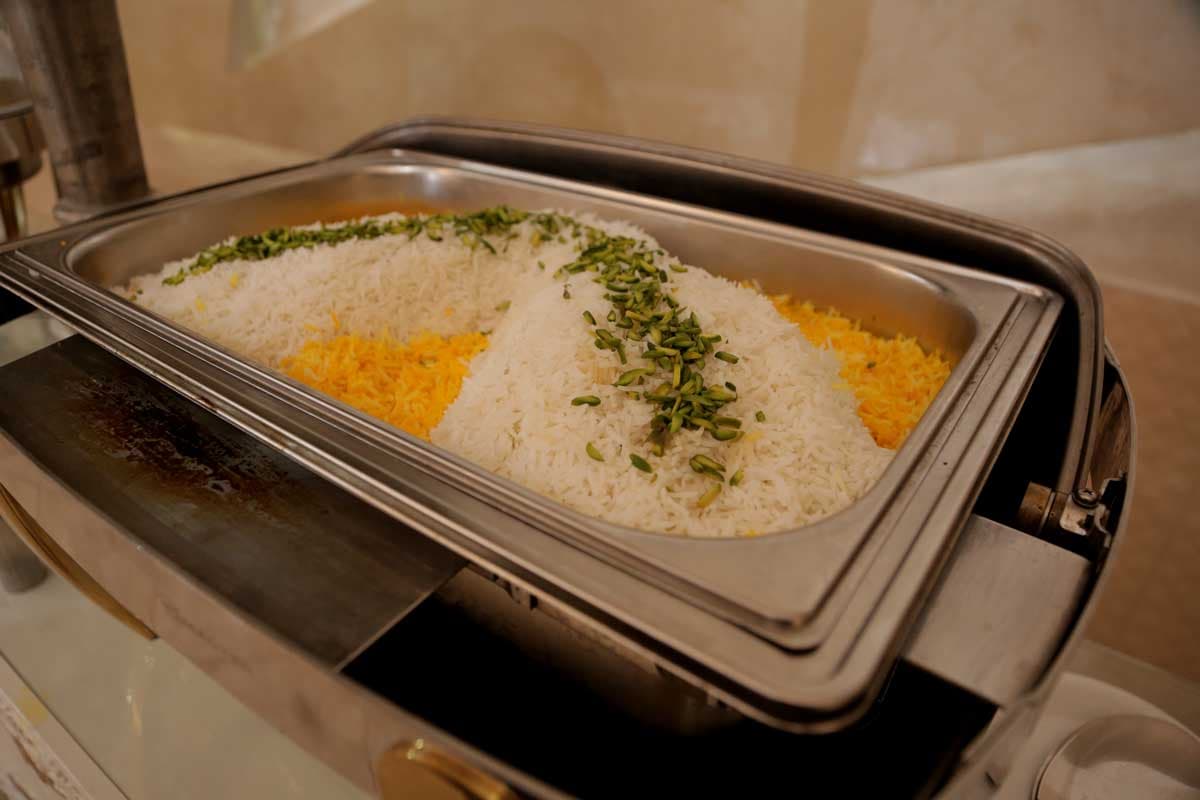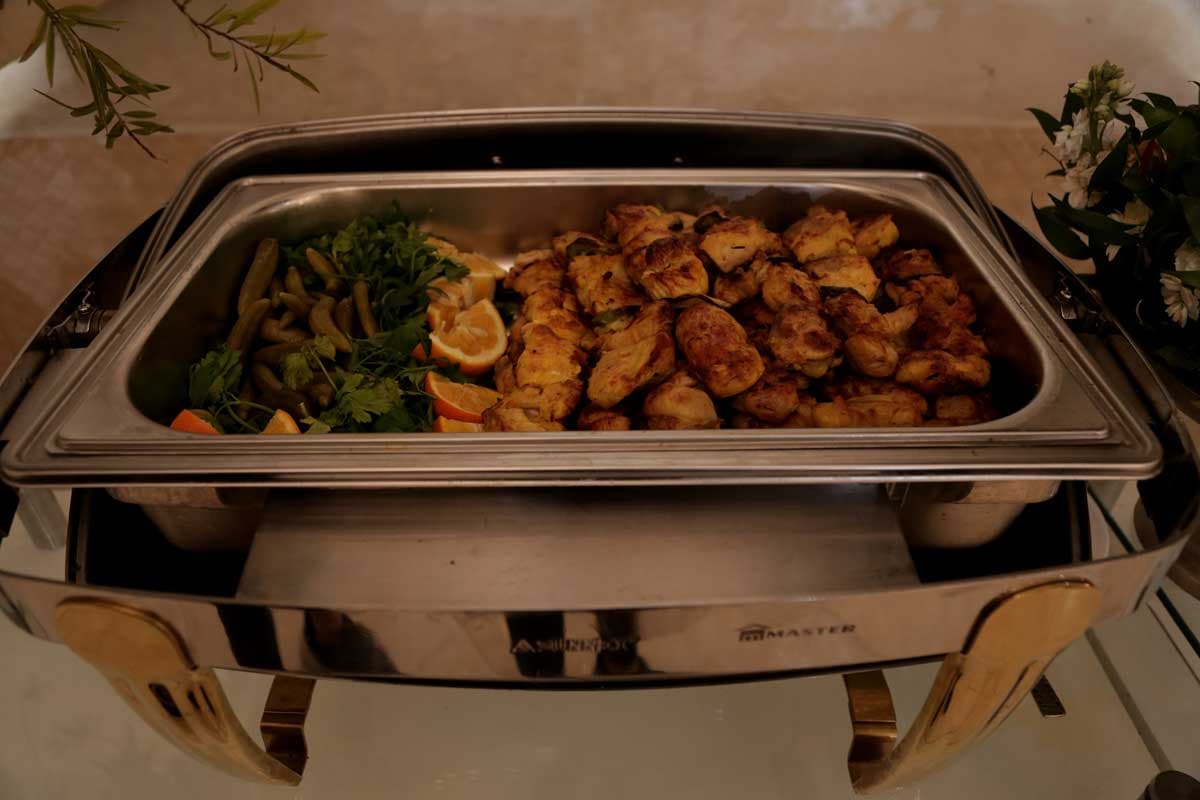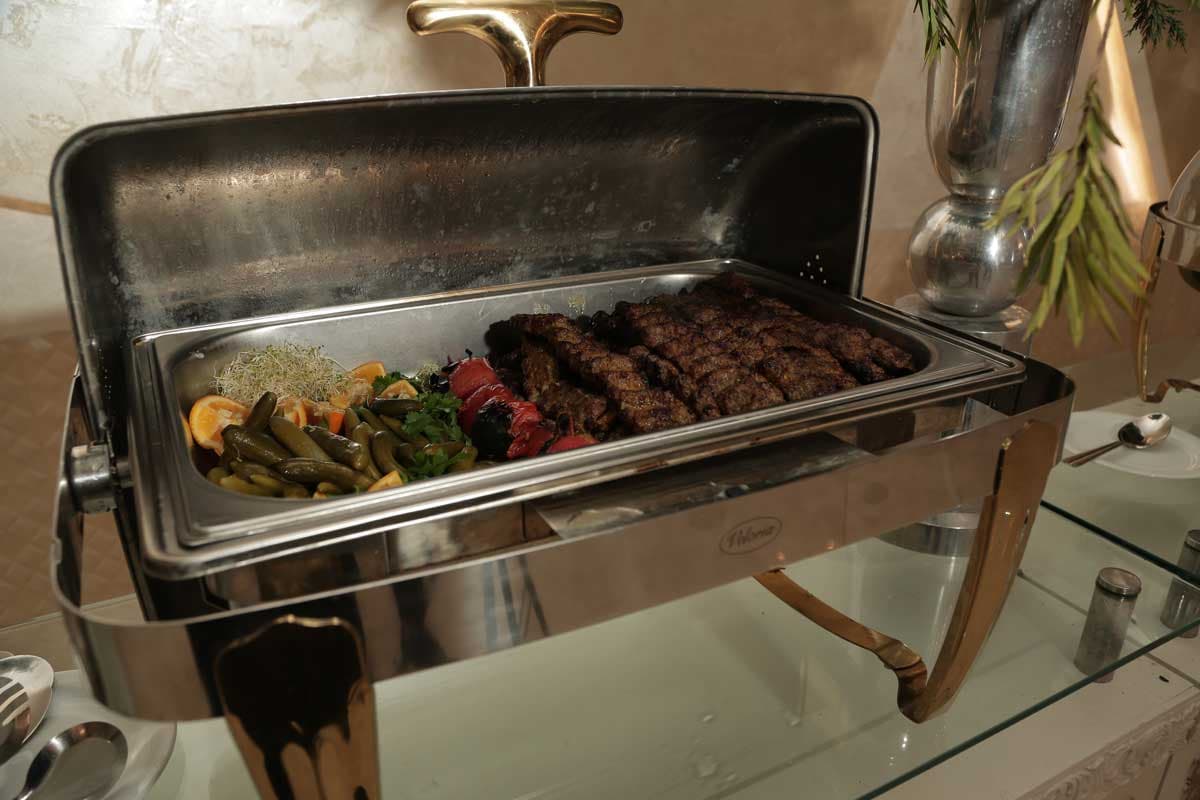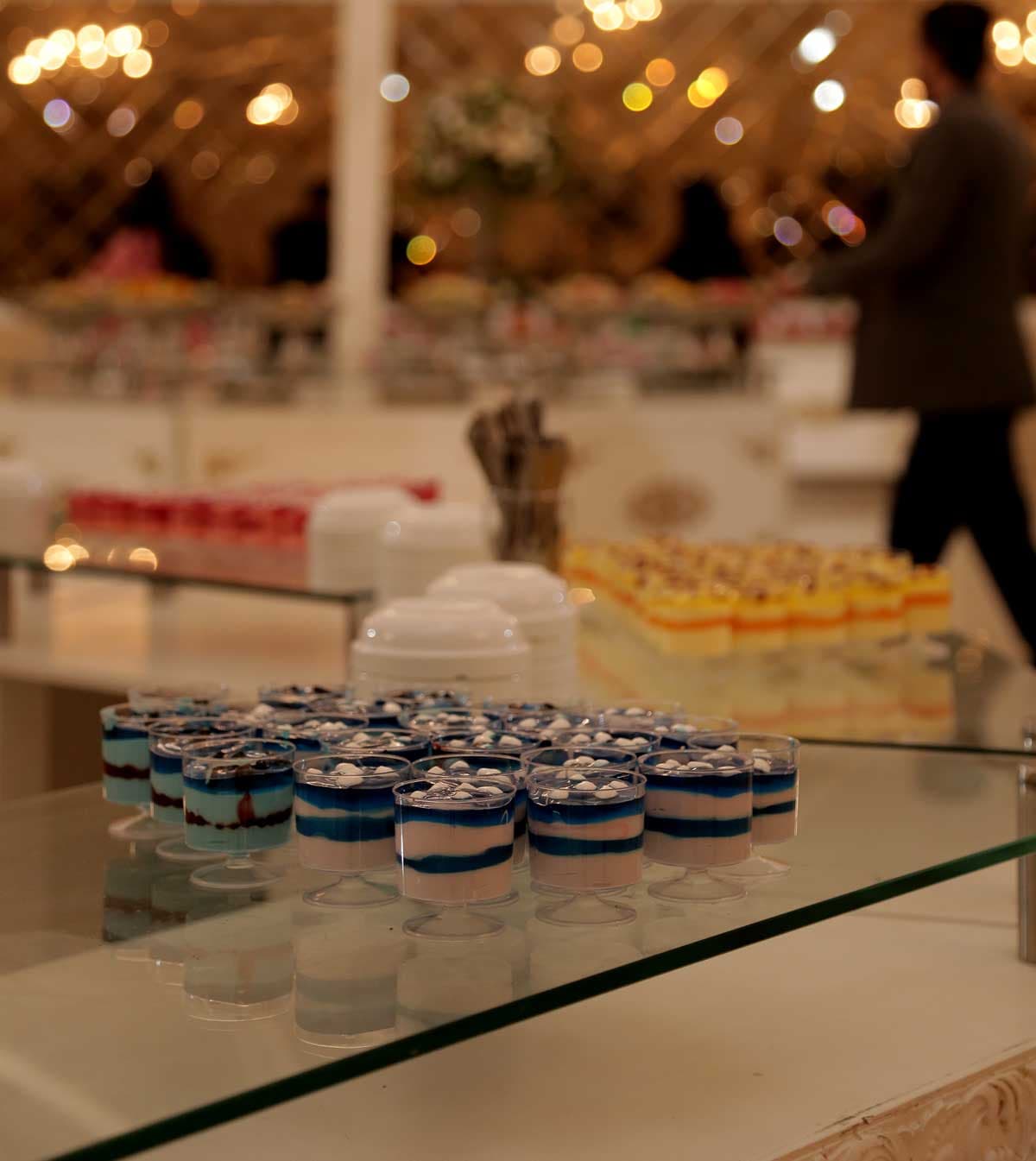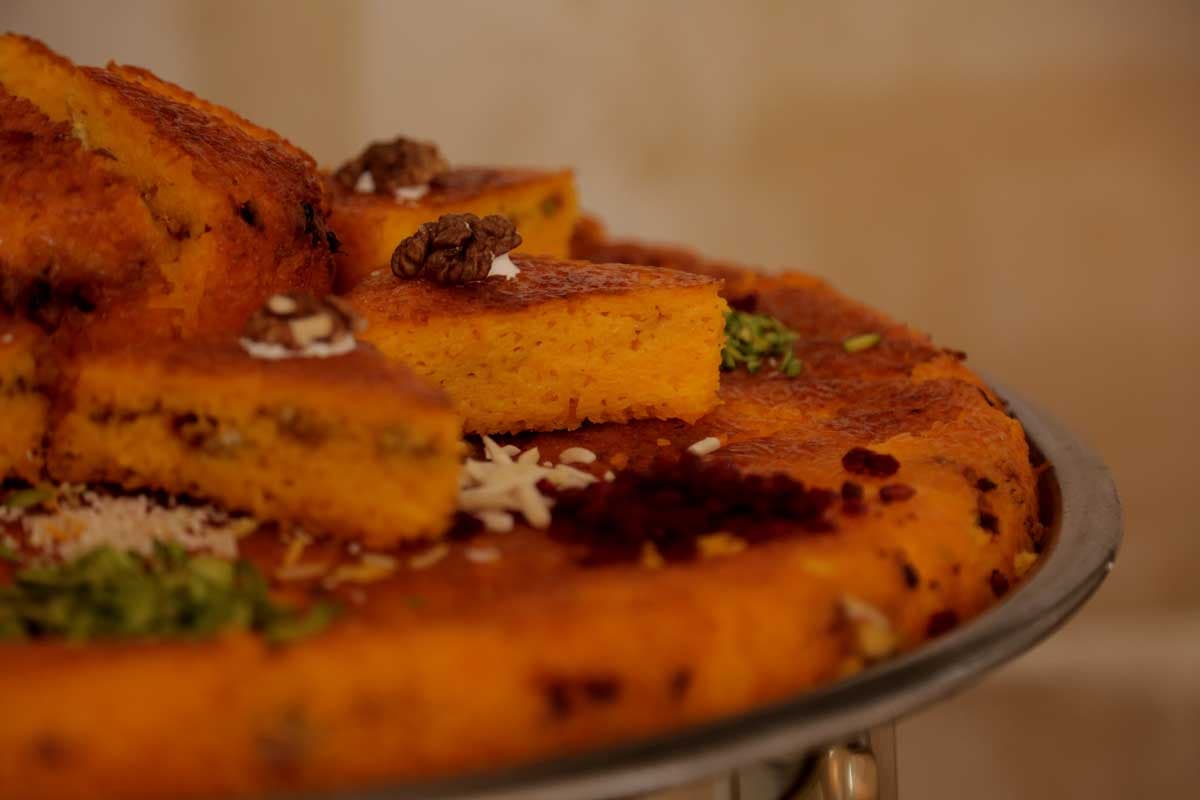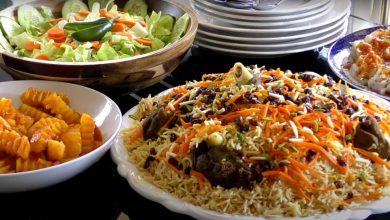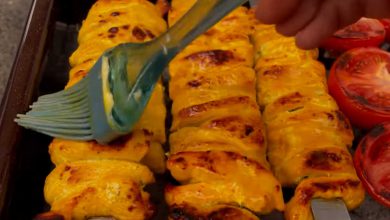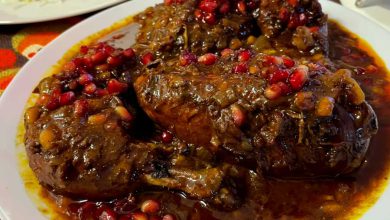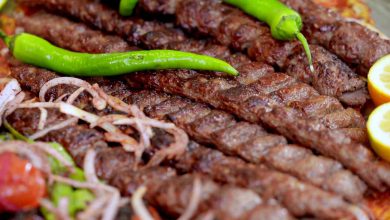Best and Famous Persian Food for Wedding 2024
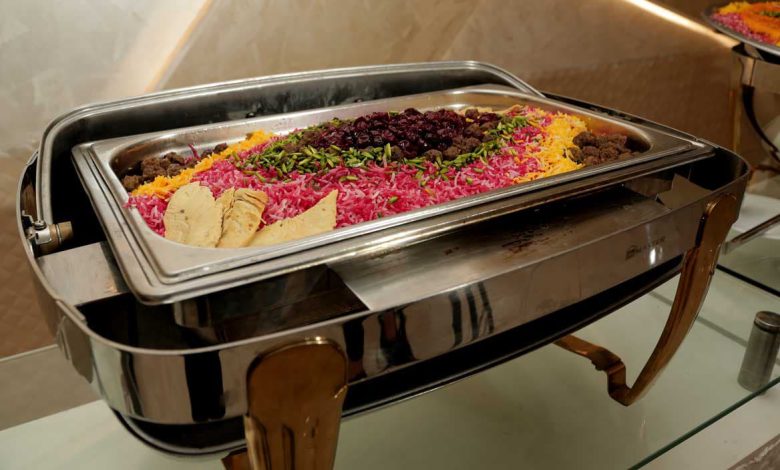
Persian food for wedding is an attractive combination of delicious and joyful flavors and colors. If you are invited to the wedding of an Iranian person, you can be sure that a series of excellent and very delicious dishes are waiting for you. Iranian food is the main thing to serve in an Iranian wedding.
The hierarchy of hospitality in Iranian weddings is as follows: First, you are served with a cold drink such as saffron syrup, albaloo syrup, or natural juices. If we are in the cold season, you will be served with drinks such as Iranian tea or Nescafe.
In the next step, you will be served a variety of delicious Iranian sweets. On the same table where you are all sitting around, there are dishes of Iranian fruits for you to eat.
After this, we will come to the stage of serving the main meal, which will be served as dinner at the end of the ceremony.
You will be served dishes such as Chelo Kabab Koobideh, Tahchin morgh, Kashke bademjan Zereshk Polo ba Morgh, Joojeh Kabab, Baghali Polo ba Mahicheh, Khoresh Fesenjan, and others, along with salad and drinks.
Stay with me in the rest of the article so that I can tell you about my experience attending an Iranian wedding ceremony and the pleasure of eating Iranian food and enjoying it together.
What is served at an Iranian wedding?
In the following, I will give a complete explanation of what is served at an Iranian wedding. We will tell you from the moment you enter the wedding hall until the last moment.
I will explain all kinds of desserts, fruits, sweets, drinks, salads, and main dishes in full and with explanations.
So be sure to be with me with these sweet moments.
Basic reception at an Iranian wedding
Nowadays, Iranian wedding ceremonies are usually held in reception halls and luxurious gardens. The reception begins when guests enter the hall and sit at special reception tables, which usually seat 4 to 6 people.
Drinks at the wedding ceremony
First, different drinks will be served to you depending on whether we are in the hot or cold seasons of the year.
In the hot seasons, you will be served drinks containing Iranian syrups, such as sharbat albaloo, sharbat zafaran, or natural juices.
If you are in the cold seasons of the year, you will be served hot drinks such as Iranian tea, Nescafe, or coffee.
Sweets at the wedding ceremony
One of the attractive and sweet parts of Iranian food at a wedding is serving sweets. After the drink is served, or at the same time, sweet dishes are placed on the reception tables for you.
The most important sweets are Shirini Danmarki, Shirini papioni, Shirini Mashahdi, and Noon khamei, used at luxurious weddings.
These delicious sweets, live music, dancing, and happiness at the wedding will create a happy and unforgettable atmosphere for you.
Fruit in an Iranian wedding ceremony
Fruits are also served at the same time as sweets in Iranian wedding ceremonies, and the type of fruit used depends on the season.
In the summer season, summer and usual fruits such as apples, cucumbers, bananas, grapes, plums, or cherries are served.
In winter, fruits such as apples, cucumbers, bananas, oranges, tangerines, and kiwis are served.
The main Persian food for wedding
We come to the main and attractive part, the main meal or Iranian wedding dinner. The main meal is one of the best parts of an Iranian wedding.
At the end of the ceremony, the main meal begins after fruits and sweets are collected from the tables. At this stage, an Iranian wedding dinner usually has two models.
The first model is a self-service space prepared for you. Different types of food, such as stews and kebabs, are placed in separate containers, and you can pour them into your dish and enjoy them yourself.
However, in the traditional style of serving Iranian food at a wedding, they first bring lettuce salad, Shirazi salad, or cabbage salad. Then, the main meal is brought to each person in a separate dish.
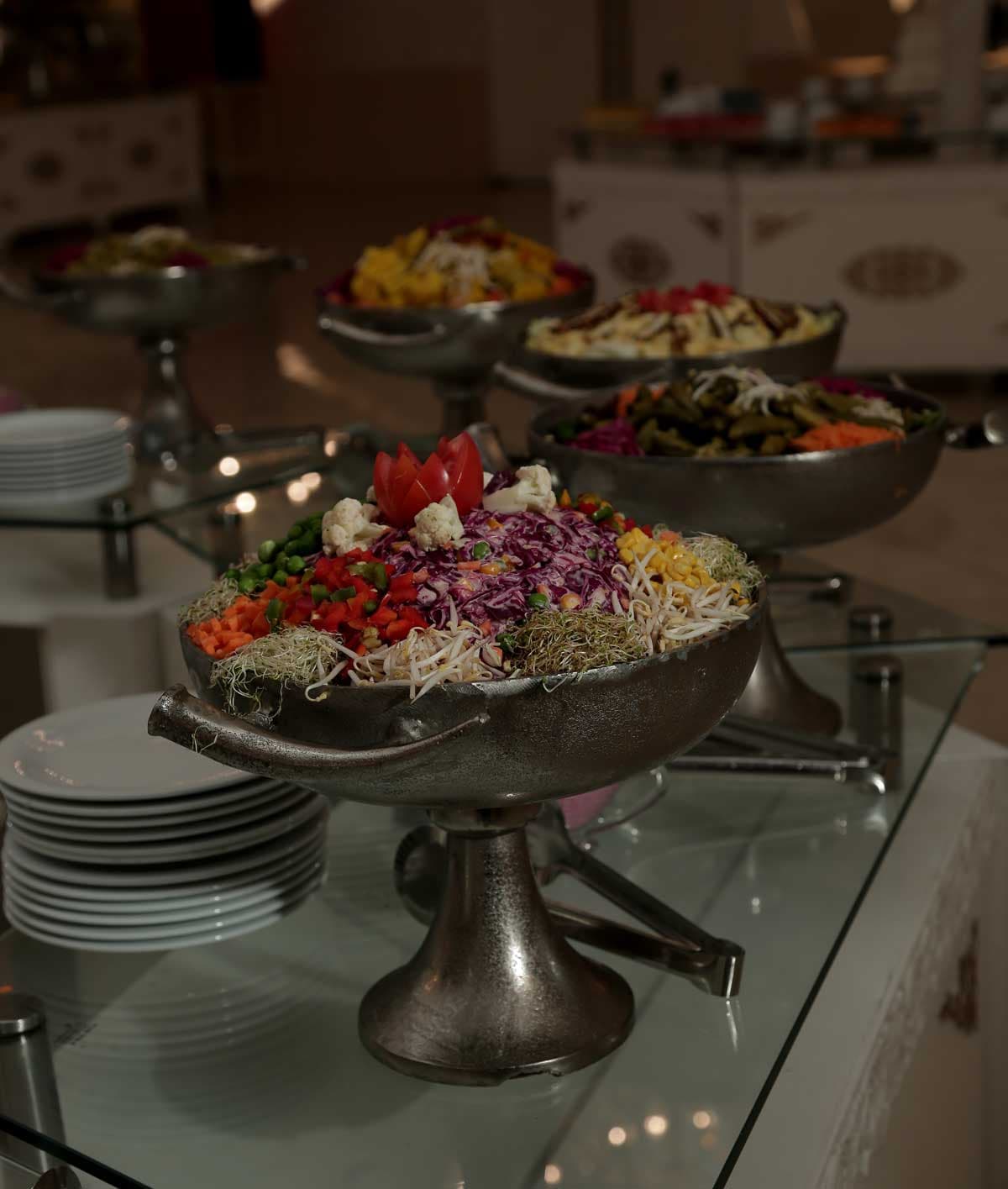
The main meal of the wedding night in Iran is usually one or at most two types of food.
Excellent and delicious foods include the most famous and widely used dishes, kebabs: chelo kabab koobideh, joojeh kabab, and zereshk polo ba morgh.
Stew dishes such as Khoresh Fesenjan , Khoresht Khalal, and Khoresh ghormeh sabzi
Rice dishes include baghali polo ba mahicheh, beef stroganoff, chicken stroganoff, and schnitzel.
We can also mention sabzi pilaf with fish and fish roe among the seafood dishes.
Dessert
Ultimately, they serve various types of jelly, traditional ice cream, ice cream cake, and multiple puddings as desserts.
Iranian wedding , also known as Persian wedding, consists of traditions rooted in Zoroastrianism, the primary religion of pre-Islamic Iran. Though the concepts and theories of marriage have been changed by Islamic traditions, the ceremonies have remained more or less the same as they were originally in pre-Islamic Iran. Although modern-day Iran is a multi-ethnic country (see also Azeri wedding), Iranian wedding traditions are embraced by the majority of ethnic groups in Iran.
Conclusion
At the end of the article on Persian food for weddings, we conclude that the foods served in Iranian wedding ceremonies are an attractive combination of great colors and flavors that can be served on the wedding night to create happy and memorable moments.
FAQ
1. What is the best and most famous Persian food for weddings?
The best and most famous Iranian dishes on wedding nights are joojeh kabab, kabab koobideh, and zereshk polo ba morgh.
2. What foods are served in an Iranian wedding?
In Iranian weddings, serving Iranian food is divided into several parts. Serving drinks, fruits, and sweets in one section, serving the main meal in one stage, and serving desserts and salads in the last stage.
3. What kind of sweets are served in Iranian weddings?
Very delicious Iranian sweets include Shirini Danmarki, Shirini Papioni, Shirini Morabaii, and Noon Khamei.
4. What kind of drinks are served in Iranian weddings?
Drinks are served according to the hot and cold seasons of the year, such as Iranian syrups, Coffee, Nescafe, and Persian tea.
